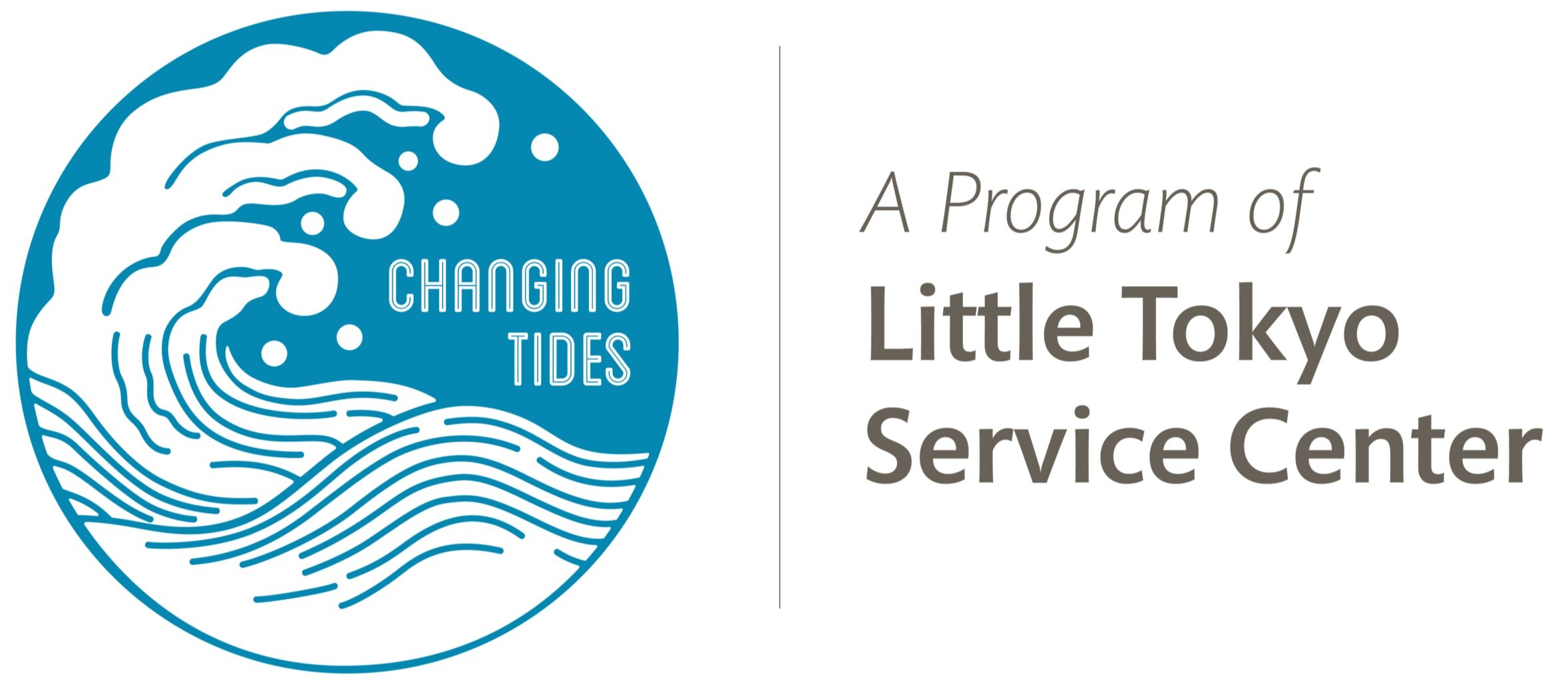Finding The Right Words
Hi everyone! My name is Sharon Lau and I am interning with Little Tokyo Service Center’s Changing Tides for the summer. I am currently a graduate student pursuing a dual Master’s degree in Asian American Studies and Social Welfare at UCLA. My research interests include exploring the mental health attitudes of Asian Americans and how that informs the way they hold conversations regarding mental health. I hope to incorporate this knowledge into my work as a therapist once I graduate.
During one of our weekly meetings, Margaret Shimada, Director of Social Services, suggested that I share some of my experiences in a blog post. I was hesitant. Just a couple of days prior, I had shared with Reine, CT Outreach Coordinator, that I did not consider myself a writer and that I strictly did academic writing. Although I would say I am an extrovert by nature, when it comes to expressing my thoughts in writing, I am the total opposite.
Up until this point, journaling in middle school was the extent of my personal writing experience. I desired for my summer internship with Little Tokyo Service Center to be as safe as possible, but Margaret convinced me that writing would be a growing opportunity. A way to challenge myself. An opportunity to use my voice. So here I am channeling my inner Carrie Bradshaw and writing this blog post.
My hesitancy towards writing a blog post stems from the belief that I do not have much to share. We are currently living in a world where there are countless platforms for people to express their thoughts and ideas. On top of that, we are living in a pandemic. During these unprecedented times, conversations surrounding mental health online have grown exponentially in my opinion. Furthermore, I have seen my friends and family prioritize their mental health by setting better boundaries with working from home, practicing daily meditation and mindfulness, and not feeling guilty about binge-watching ‘Indian Matchmaking’ or ‘The Last Dance’ on Netflix in one sitting.
Despite all these conversations and strides in the realm of mental health, I still felt hesitant to share. Where did my story fit in with all the “How To” Instagram graphics, Twitter threads, and YouTube videos? As I battled the feelings of fear, I soon realized that I did not need to find a place, I needed to find my voice.
Being a second-generation Chinese American, I have found similarities between my mental health experiences and those of other Asian American folks. The way Asian Americans speak about mental health can differ from mainstream conversations, in that there is a hidden element of stigma that surrounds the topic. We cannot be too provocative with our words, fearful that it will drive others away after getting their attention.
The way Asian Americans tip toe around the topic of mental health is a dance that I have mastered over the years. As I grew older, I realized that my family did not really speak about mental health and many things would get brushed off as someone being “tired” or “crazy”. In an effort to draw attention to underlying issues that may be overlooked and reframe the way my friends and family viewed mental health, I decided to start directly addressing the topic. Overcoming the nerves to even start a conversation and having the courage to press forward was difficult and often uncomfortable. But having a productive conversation without getting shut down or asked condescending questions made this process even more challenging.
Working in the mental health field, I have developed ways to quickly explain what I do and why I do it to my extended family, while trying my best not to be dismissed. The script I have perfected in broken Cantonese feels like armor; I feel as if I am in a constant battle to justify my career choice and defend the importance of mental health, even when it contends with Chinese cultural values. These conversations have often left me exhausted from sharing…
While these conversations do not come up as frequently since everyone knows what I am in school for, I still find it important to make space for these dialogues. My parents, for example, have come a long way. They used to be dismissive and avoidant of the topic of mental health, but now my mom will ask me things like “you have therapy tomorrow?” By showing care in this way, she has helped to remove the stigma and taboo that once surrounded mental health in our family. We took the words we once avoided and gave them new meaning.
I always try to find the right words, thinking my choices are not representative or good enough. But writing this blog post made me look at the bigger picture. There are billions of stories related to mental health and each one is equally important. The words may not be perfect, but the message is worth sharing.

